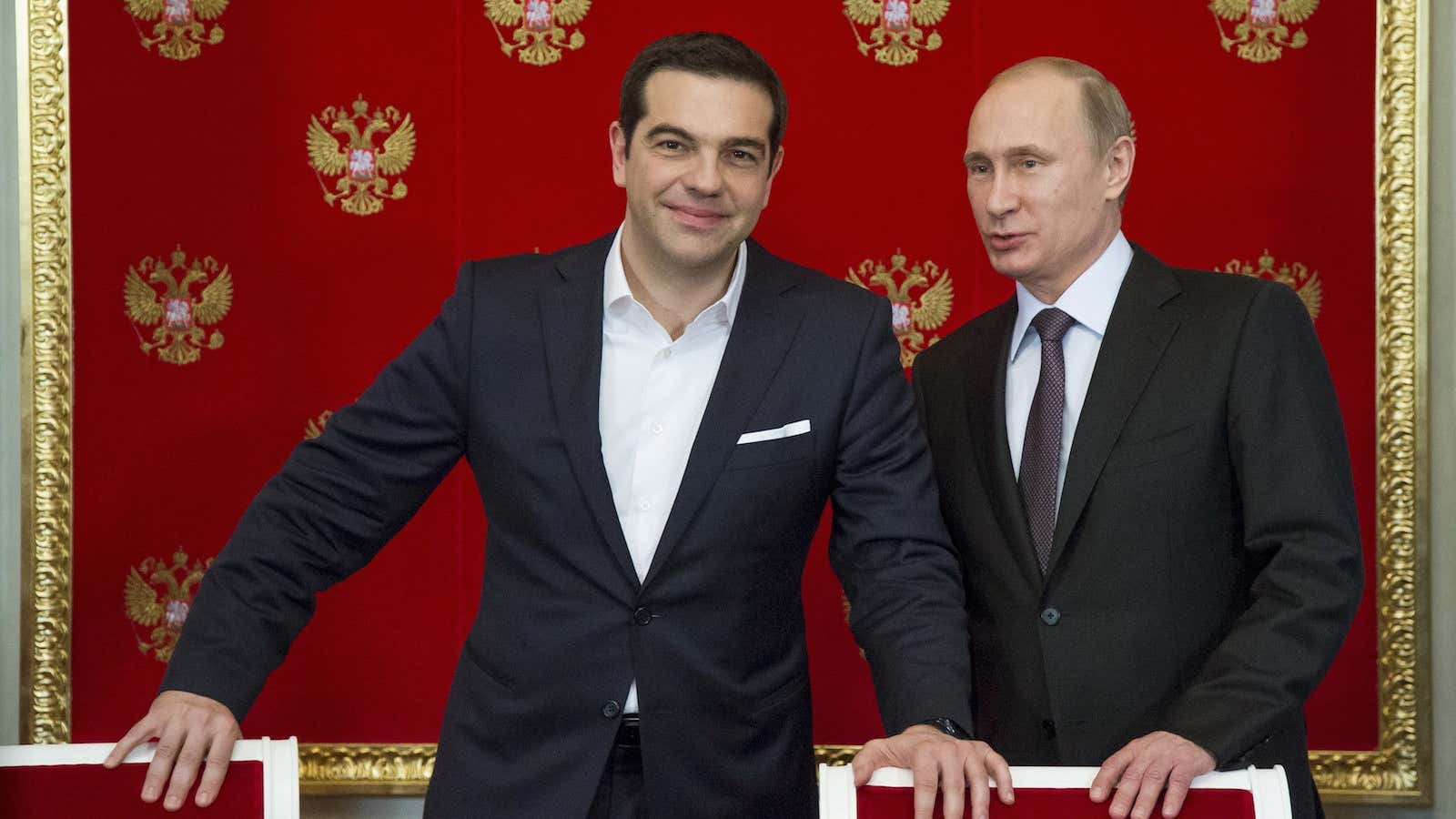At the beginning of April, Greek Prime Minister Alexis Tsipras made a state visit to Moscow. Mr. Tsipras and Russian President Vladimir Putin had a lot to discuss: the two countries are working to finalize negotiations on a pipeline for Russian natural gas between Turkey and Macedonia (FYROM), and it has emerged that Greece is now in talks to buy S-300 missiles from Russia. Greece’s newfound coziness with the Kremlin has also been on display in Greek criticism of European Union sanctions in response to Russia’s annexation of Crimea.
Meanwhile, Mr. Tsipras is becoming an ever bigger frustration to Greece’s fellow EU members. The election of his Syriza party came on the promise of ending austerity measures imposed by the EU and International Monetary Fund. Since coming to power in Jan. 2015, the government has continued to push for a better deal from its European partners, but some prominent party members suggest that they might also be looking for new sources of funding.
So far, Brussels and Berlin have signaled their unwillingness to accept the terms that brought Syriza to power, leaving Mr. Tsipras looking for either a new partner or new bargaining chips. Russia could supply both. Nevertheless, a realignment with Russia would be a bad choice for Greece. Despite sharing the Orthodox Church, Greece is economically and culturally much closer to the European Union.
The maps below illustrate this relationship by re-sizing the world’s countries to reflect the strength of their ties to Greece, on several points.
Half of Greek exports go to the EU
The euro was supposed to boost trade between European Union member countries, and Greece’s intra-EU trade makes up roughly half of its exports: 53% for merchandise and 54% for services. By contrast, Russia is only Greece’s 21st largest merchandise export destination, far behind several individual EU members, and nowhere near the total of the EU as a whole.
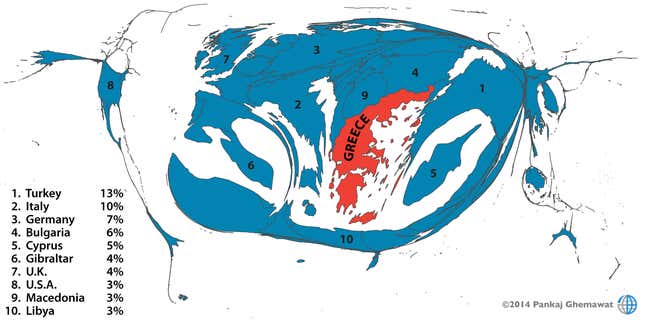
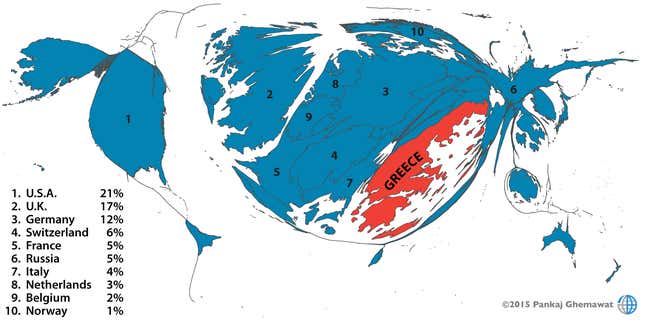
Greece relies on European investments
Of Greece’s top 10 holders of foreign direct investment stocks only two are not EU members. Russia is number 17. While some investment from outside the EU is routed through EU countries (e.g., Luxembourg), even correcting for indirect investments the EU would remain Greece’s top investor by a wide margin.
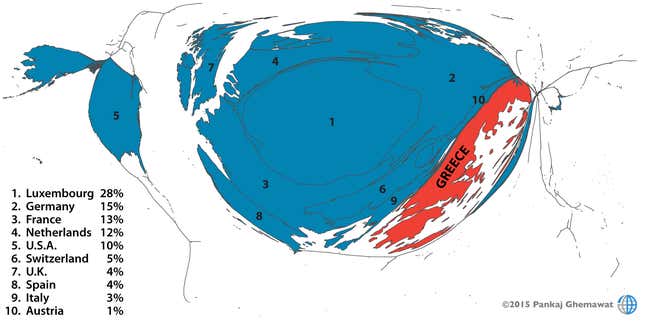
Europe continues to invest in Greece
Despite the threat of a “Grexit” from the eurozone, the EU has continued to invest in Greece. Between 2011 and 2013, France was Greece’s biggest foreign investor. The provisional data for 2014 do show a dropoff in the EU share of foreign direct investment inflows into Greece—but with North America boosting its investment, not Russia.
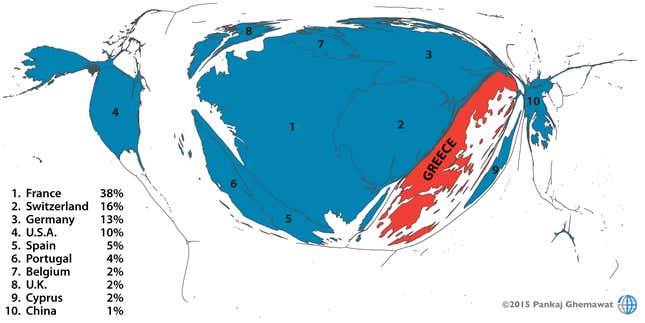
Cultural ties count
Greece has strong people-to-people ties with Europe. Greece may not always like what Germany has to say, but one out of three minutes of incoming phone calls to Greece came from Germany in 2012.
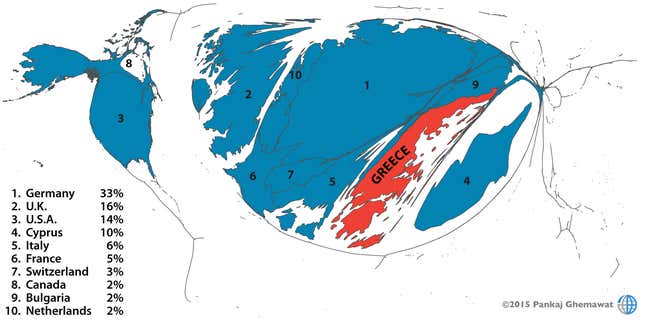
More Greeks have emigrated to Germany than to any other country worldwide. Steadfast German tourists continue to visit Greece, too, despite the hard feelings between Athens and Berlin.
Nearly 70% of international tourists arriving in Greece in 2012 were from the EU. Only 6% came from Russia. The Russians were proportionally bigger spenders (generating 11% of tourism services exports), but overall, tourists from the EU spent more: 65%.
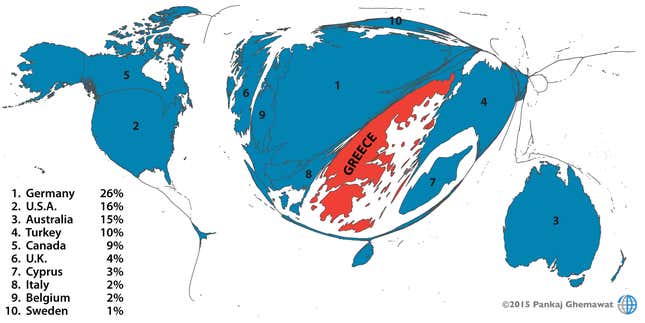
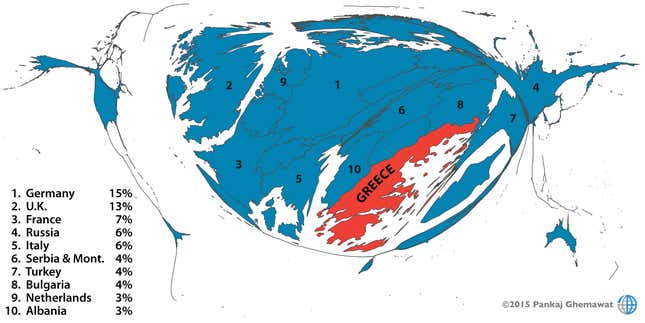
Encouraging stronger ties to Russia might increase the Russian share in some of these metrics, but the European Union continues to be a more attractive partner for Greece. Athens should be careful; Russia is in no position to replace European support of the Greek economy.
So while Mr. Tsipras makes his overtures to the east, he should remember that his country is far more connected to the northwest. Averaging across all of the flows mapped in this article, Greece interacts 27 times more with the EU than with Russia. Reorientation is easier in rhetorical terms than in real ones.
